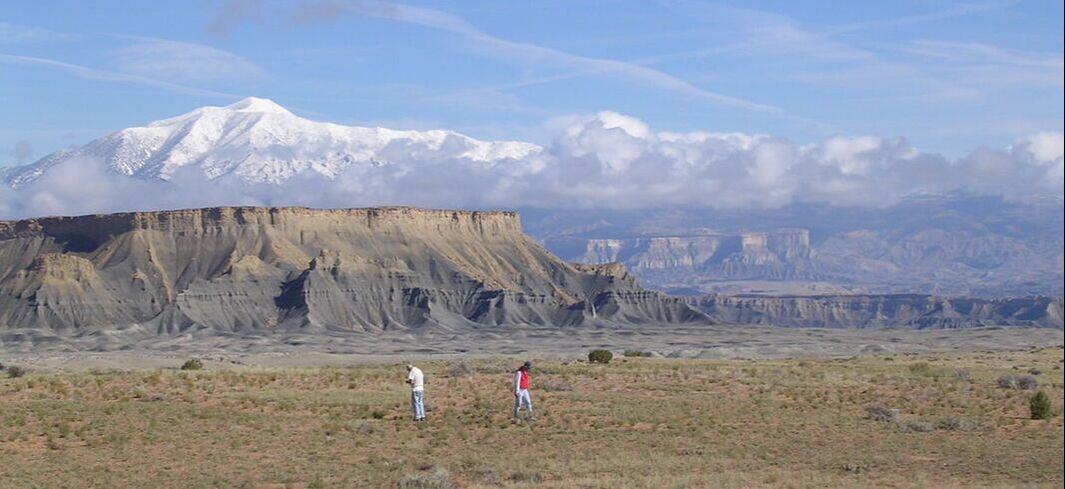Drawing in honor of an old friend I recently learned that one of my favorite mentors from graduate school, Dave Swift, had died when I was invited by the Natural Resource Ecology Lab to a symposium in his honor. Dave was one of my GK-12 advisors during my doctoral program at Colorado State University, but he was so much more. I first met Dave when I bounded into his office to inquire about being sponsored by the NSF GK-12 program, which paired graduate students with K-12 educators in Fort Collins. We hit it off immediately (which I attribute more to Dave's affable personality than to mine) and had a great conversation about my research in Latin America, camping in the Southwestern US, and the value of getting students into the field when teaching ecology. Fast forward three years and Dave was knee deep in Hall's Creek in Capitol Reef NP helping me with my field research. He and another NREL employee offered to help me with my fieldwork, but they preferred to help me in a location far, far from a vehicle than with anything "easy." The park biologist at Capitol Reef was more than happy to have us hike into Hall's Creek and sample aquatic invertebrates there, so we loaded up our backpacks with waders, sampling nets, and a couple of nights' worth of gear and headed for the hills. We had a wonderful time sampling the creek, telling stories around the camp stove and exploring the Narrows. Dave and his colleagues inspired a significant shift in the way ecologists think about arid grassland ecosystems. Much of the early work in ecology took place in the eastern USA, which is a relatively stable place, so many ecological models are based on the idea that ecosystems are generally in equilibrium and disturbance pulls them away from equilibrium. However, arid grasslands are rarely in equilibrium because of the highly variable climate. Dave and his colleagues suggested that aridland ecologists just stop assuming that everything starts from equilibrium. It gets a little bit more complicated from there, but hopefully these visual notes will help you get a sense of his work and, perhaps more importantly, the way that he mentored and inspired other people to think and live outside the box. Resources:
Sent et al. 1987. Large Herbivore Foraging and Ecological Hierarchies: Landscape ecology can enhance traditional foraging theory. Bioscience.
0 Comments
Your comment will be posted after it is approved.
Leave a Reply. |
Details
Categories
All
Angie B. Moline
Dr. Moline is an ecologist and visual process facilitator who draws pictures to help clients think. She is currently on a quest to understand why live drawings are so compelling and how to make them as sticky as possible in order to improve communication, understanding, and memory. Follow here journey here! |
strategy
innovation
Communication
Clients & Case Studies
philanthropy
ABOUT US
|


 RSS Feed
RSS Feed




